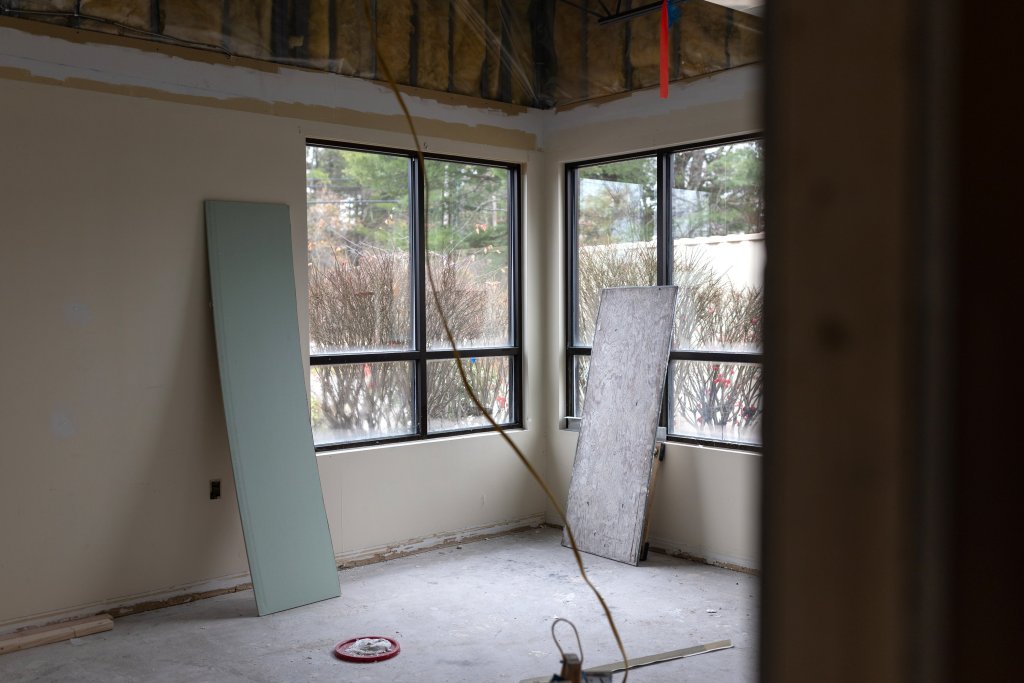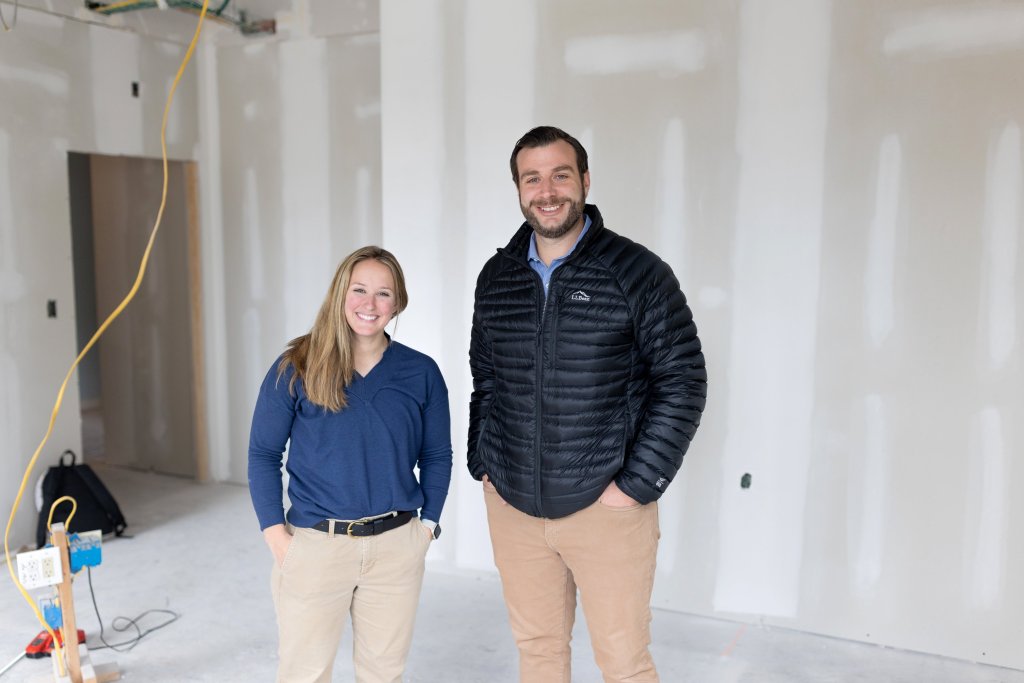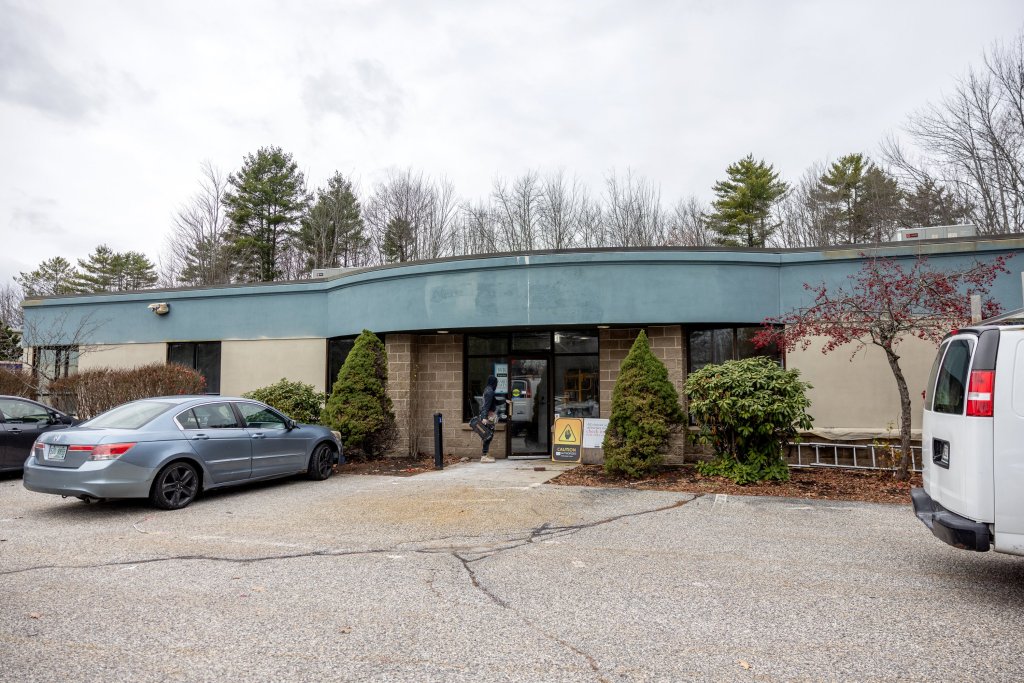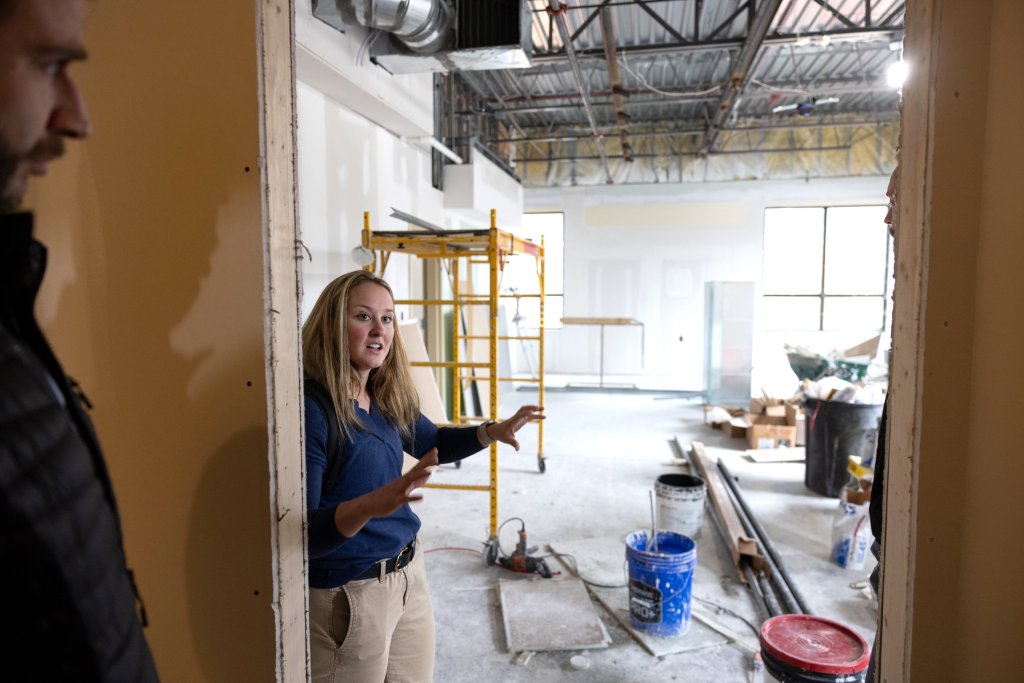
The drywall is still unfinished, but in a few months, a building at the western edge of South Portland will become a new child care facility for about 100 infants and young children.
It’s one of two centers opening in early spring of 2026 as part of the nonprofit initiative United 4 Child Care. The other facility, in Freeport, will serve an additional 100 kids.
Together, they hope to make a small dent in what many in the state call a crisis: child care is expensive and inaccessible, which prevents adults with children from entering the workforce.
“The reality is there are too many working families that aren’t starting families in Maine because they don’t have child care,” said Josh Waxman, senior vice president of community impact at United Way of Southern Maine, the organization behind United 4 Child Care.

Child care access and affordability have been challenges in Maine for years.
The United Way centers are using a public-private partnership model to address the need. Business partners, who have not yet been disclosed, will make charitable donations to the organization, which in turn will offer child care to the children of their employees, as well as the broader community. The centers will provide care for working families, with a focus on those who live paycheck to paycheck.
“Your folks who are doing surgery need child care, and your folks who are janitorial staff need child care,” said Rebecca Alfredson, United Way’s senior director of programs. “How do we create a model that works for both?”
In addition to those locations in South Portland and Freeport, United 4 Child Care is also planning to open several more centers and to help expand staffing at preexisting facilities to create 400 total child care spots in southern Maine over the next five years.
At the same time, Maine lawmakers, businesses and organizations are working on addressing the child care access issue broadly, which many see as the largest barrier to growth in the state’s workforce.
MAINE’S CHILD CARE CRISIS
Maine Senate President Mattie Daughtry, a Brunswick Democrat, has spent almost four months on a listening tour, visiting child care facilities around the state to hear directly from the people who work at or use them.
Daughtry is in the process of drafting legislation she said will synthesize the concerns of operators and employees into three or four policy recommendations. She plans to release that draft in January.
She said her biggest takeaways are that child care workers need to be honored for their often-underestimated work, and fairly compensated for the critical jobs they do.
Maine offers a few programs to support the child care industry, including a stipend for child care workers (which was cut in half then restored during the latest legislative session) and a program that helps cover the cost of tuition for families making at or below 125% of Maine’s median income. But that latter program is full and has a long waitlist.
Daughtry said those existing programs are great, but vulnerable.
“We need to find really, truly sustainable funding mechanisms, because we have waitlists, there are things that could potentially be on the chopping block if we don’t find a way to enshrine them, and protect these programs,” she said.
United Way isn’t the only organization turning to businesses to resolve child care needs, and Daughtry said private industry is a crucial part in the larger child care ecosystem.
Some businesses have seen solutions in building their own child care facilities; Bath Iron Works, one of Maine’s largest private employers, recently opened a center in Brunswick with 120 child care slots, two-thirds of which are filled by BIW families.
UNITED 4 CHILD CARE
Quincy Hentzel, president of the Portland Regional Chamber of Commerce, said the idea for the new centers in Freeport and South Portland came out of a roundtable discussion with business leaders about how a lack of child care options impacts the local workforce.
“Employers consistently shared that the shortage of quality, affordable and convenient child care was directly affecting their employees’ ability to work,” Hentzel said.

Then, the chamber surveyed more than 1,000 employees and found common themes: About a third of respondents reported relying on a mix of arrangements, like child care centers and family, to cover care for their children, and almost a third said they need child care support outside of traditional work hours. Among unemployed adults, 84% said access to affordable child care would allow them to work.
“Our primary focus at the chamber is to remove barriers that prevent people from entering the workforce in Maine,” Hentzel said.
To operate the sites, United Way is partnering with a licensed child care provider who will handle staffing, one of the biggest challenges for the industry. They’re also aiming to provide child care for second- and third-shift workers, like nurses or fast-food employees, through a 24-hour facility. The goal is to develop that option in the next two to three years. Staffing would be difficult, but Waxman said they have heard some interest.
United 4 Child Care hasn’t yet set a tuition rate.
The new facilities, which have taken about two years to build, elucidated for Wexman and Alfredson one of the biggest challenges to improving child care access: endless regulatory hurdles.
Alfredson said she strongly believes that the child care industry should be regulated, but said the barriers are just too high.

For example, the centers need one bathroom for every 20 students, one classroom for every eight infants, and rooms have to be designed so adults have a line of sight on children at all times. Every municipality has its own planning and zoning rules.
“We’re calling this a crisis. Look at COVID, we got things done fast, we should be treating child care the same way,” Waxman said. “I don’t think that the government response necessarily — while well intended — has caught up to the fact that this is a crisis.”

We invite you to add your comments. We encourage a thoughtful exchange of ideas and information on this website. By joining the conversation, you are agreeing to our commenting policy and terms of use. More information is found on our FAQs. You can modify your screen name here.
Comments are managed by our staff during regular business hours Monday through Friday as well as limited hours on Saturday and Sunday. Comments held for moderation outside of those hours may take longer to approve.
Join the Conversation
Please sign into your CentralMaine.com account to participate in conversations below. If you do not have an account, you can register or subscribe. Questions? Please see our FAQs.